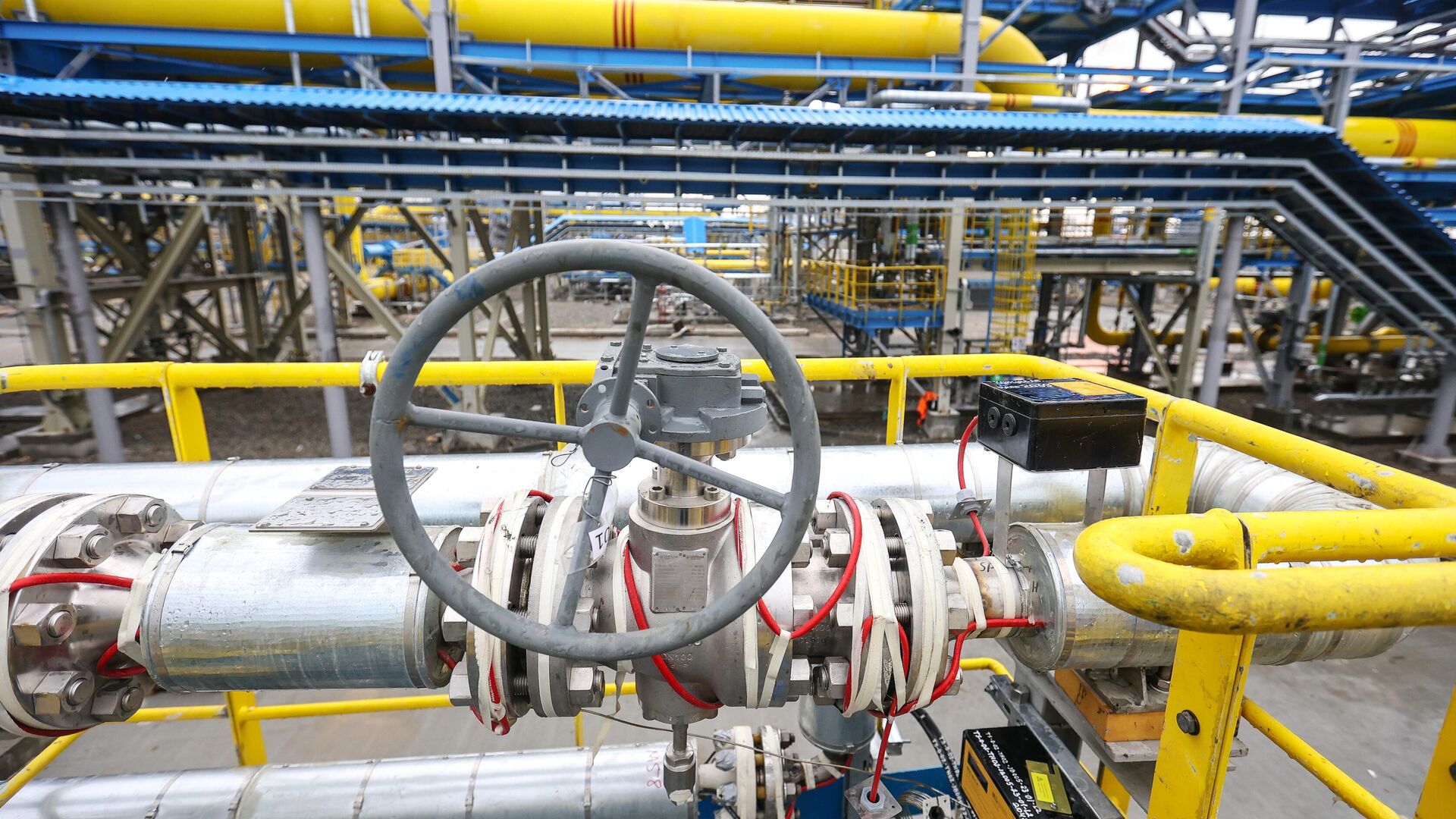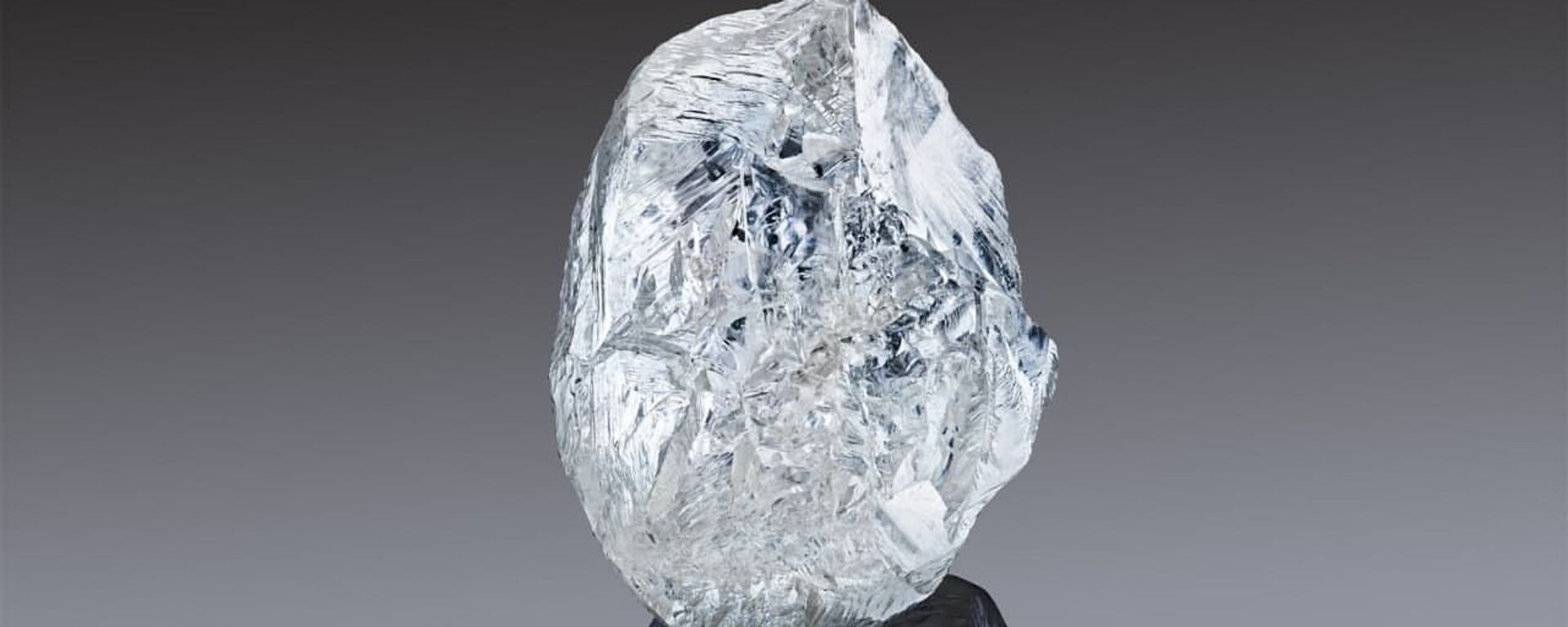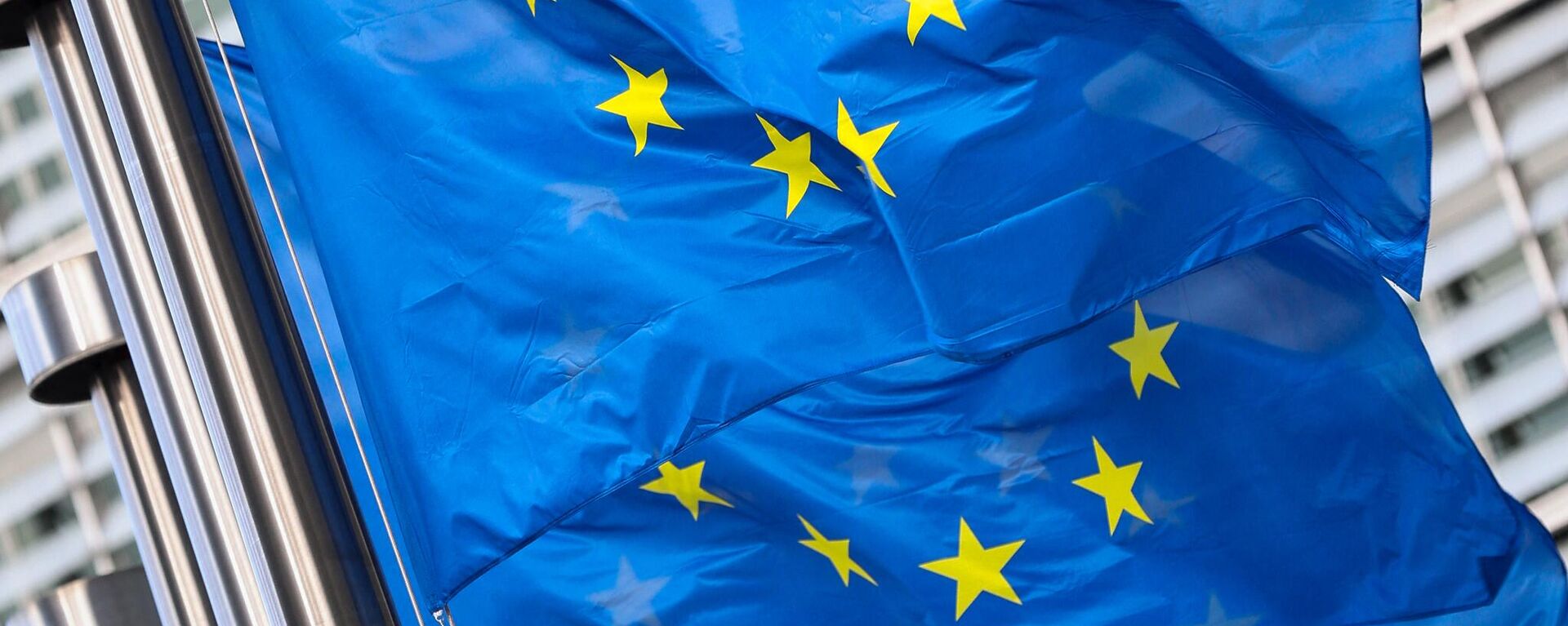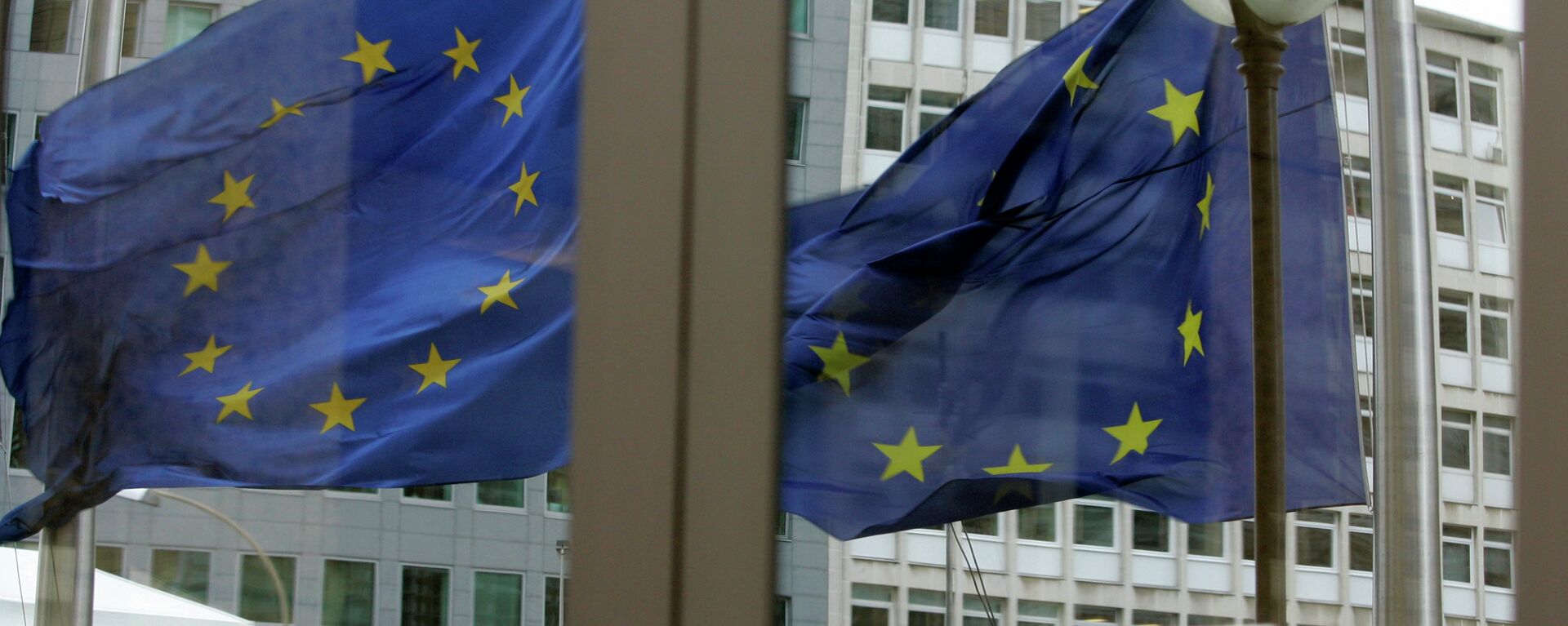https://sputnikglobe.com/20230926/eu-will-not-be-able-to-stop-purchasing-russian-gas-in-near-future-1113679063.html
EU Will Not Be Able to Stop Purchasing Russian Gas in Near Future
EU Will Not Be Able to Stop Purchasing Russian Gas in Near Future
Sputnik International
The European Union will not be able to completely abandon gas supplies from Russia in the near future as this could inflate market prices, Kirill Logvinov, the acting head of the Russian mission to the EU, told RIA Novosti.
2023-09-26T10:31+0000
2023-09-26T10:31+0000
2023-09-26T10:31+0000
world
grigory logvinov
russia
ukraine
brussels
european union (eu)
european commission
https://cdn1.img.sputnikglobe.com/img/07e5/0b/1a/1091047214_0:82:3349:1966_1920x0_80_0_0_42cd64cf91f2256f0fbd90f9274be717.jpg
"If we talk about calls for a complete refusal of Russian supplies of ‘blue fuel,’ including LNG, then in the near future this is impossible. Refusal to purchase it from Russia under existing long-term contracts will entail serious financial costs for the European Union. Stopping the use of free volumes of domestic LNG in conditions of limited supply will once again increase energy prices in the EU," Logvinov said. He also noted that despite the rapid implementation by the EU of annual commitments to fill 90% of the volume of gas storage facilities by November 1, "underground gas storage facilities can cover, according to the European Commission, only up to a third of the winter demand from European consumers, while the rest will have to be covered by continuous supplies from abroad." In late August, the European Commission said that the bloc had already imported 10.9 billion cubic meters of Russian LNG from January to June 2023, while the figure for the whole of 2022 amounted to 19.3 billion cubic meters, and for 2021 — to 13.5 billion cubic meters.Possible Sanctions Against Russian Diamonds Threatening World MarketThe West's plans to impose sanctions on diamonds from Russia are aimed at collapsing the global market control system, and also threaten production and supply chains, the acting head of the Russian mission to the EU said.The G7 members are expected to announce trade restrictions against Russian diamonds by the end of September-October, while the EU intends to adopt sanctions against Russian diamonds in October-November. The ban on imports of Russian rough diamonds is supposed to go into effect from January 1, 2024."It is possible that we may be talking about creating some kind of parallel mechanism to the Kimberley Process, aimed at excluding precious stones of a certain origin from world trade. Such an initiative, if implemented, is discriminatory in nature, it contradicts the rules of international trade and the foundations of the Kimberley Process and is actually aimed at its collapse, carries serious risks for the functioning of global production and supply chains. A number of developing countries involved in these chains, primarily cutting centers, may also be affected. Such plans of the West once again demonstrate complete disregard for the interests of the states of the Global South," Logvinov said.He added that "the specific parameters of possible sanctions against Russian diamonds have not yet been disclosed by the European Commission," so it is premature to judge how they may affect the export of these goods from Russia.EU Legalized Extraterritorial Application of Its SanctionsThe European Union actually legalized in the latest package of sanctions against Russia the extraterritorial application of its unilateral restrictions, although the bloc had previously called such a move a violation of international law, Kirill Logvinov, the acting head of the Russian mission to the EU, told RIA Novosti.He recalled that the EU criticized Washington for trying to impose its own restrictive measures on third countries.The Russian diplomat also noted that the new EU mechanism to combat sanctions evasion by Russia is designed to force third countries "to get involved in the economic war unleashed by the West against Russia."More EU Countries May Refuse to Comply With Unfavorable Decisions From BrusselsThe refusal of Slovakia, Hungary and Poland to follow the decision of the European Commission on the issue of importing Ukrainian agricultural products could become a "contagious example" for other EU states that do not want to implement decisions that are unfavorable for them, Kirill Logvinov stressed. "The latest dispute, caused by Brussels’ policy of providing comprehensive support to Kiev, is the problem of the increased import of Ukrainian agricultural products into the EU, which Bratislava, Budapest and Warsaw have faced. And not only for them, the question of how long the European capitals are willing to suffer losses for the sake of ‘Kiev’s fight for the fate of Europe’ may be acutely raised. And the actions of the three EU member states bordering Ukraine, which refused to submit to unfavorable conditions, could become a contagious example for other states of the bloc," Logvinov said.The Russian diplomat also noted that recently, the political guidelines of the EU have increasingly come into conflict with the economic interests of member states and entire sectors of their economies.EU Not Abandoning Idea of Confiscating Russia's Foreign AssetsBrussels has not given up on the idea of confiscating Russia's frozen state assets in the future, despite the objections of the European Central Bank and the concerns of a number of states that such a step could undermine confidence in the EU financial system, Kirill Logvinov said."As for the blocked assets of the Bank of Russia, the European Commission has not yet presented its proposals regarding the use of these assets for the ‘restoration of Ukraine’ due to well-founded concerns voiced by a number of member states and the ECB. It is clear that the theft of foreign sovereign assets or the receipt of ‘windfall profits’ through their illegal turnover will undermine confidence in the European financial system. However... Brussels has not yet abandoned the idea of confiscating the main part of domestic state assets located in the EU at some stage in the future - of course, under a fictitious international legal ‘cover," Logvinov said.The ambassador added that such a scenario cannot be ruled out due to the deterioration of the financial and economic situation in the EU, and due to the unclear prospects for continued assistance to Ukraine from the United States in the event of a possible change in the US administration.As for the private assets of Russians, the EU also violates the basic principles of international and European law, Logvinov noted.Last Tuesday, European Commissioner for Justice Didier Reynders said that the EU froze over 200 billion euros ($211.6 billion) of reserves of the Russian central bank and about 24 billion euros of funds of Russian citizens and companies.Hungary's EU Council Presidency in 2024 to Not Alter Anti-Russian PolicyHungary's presidency in the Council of the European Union, which will take place in the second half of 2024, is unlikely to lead to a rollback in anti-Russian policy, Logvinov said."It is important to understand that the anti-Russian agenda is formed in the European Union by collective decisions of European capitals, and not so much by the country presiding over the EU Council. Therefore, it is impossible to talk about any possible rollback in a broad sense," Logvinov said.
https://sputnikglobe.com/20230327/western-attempts-to-hinder-russian-diamond-exports-contradict-industry-interests-moscow-1108822867.html
https://sputnikglobe.com/20230629/summit-of-european-union-to-start-in-brussels-1111537842.html
https://sputnikglobe.com/20230623/eu-council-adopts-11th-package-of-sanctions-against-russia-1111415597.html
russia
ukraine
brussels
Sputnik International
feedback@sputniknews.com
+74956456601
MIA „Rossiya Segodnya“
2023
Sputnik International
feedback@sputniknews.com
+74956456601
MIA „Rossiya Segodnya“
News
en_EN
Sputnik International
feedback@sputniknews.com
+74956456601
MIA „Rossiya Segodnya“
Sputnik International
feedback@sputniknews.com
+74956456601
MIA „Rossiya Segodnya“
european union, russian gas, inflate market prices, abandon gas supplies from russia
european union, russian gas, inflate market prices, abandon gas supplies from russia
EU Will Not Be Able to Stop Purchasing Russian Gas in Near Future
BRUSSELS (Sputnik) - The European Union will not be able to completely abandon gas supplies from Russia in the near future as this could inflate market prices, Kirill Logvinov, the acting head of the Russian mission to the EU, told Sputnik.
"If we talk about calls for a complete refusal of Russian supplies of ‘blue fuel,’
including LNG, then in the near future this is impossible. Refusal to purchase it from Russia under existing long-term contracts will entail serious financial costs for the European Union. Stopping the use of free volumes of domestic LNG in conditions of limited supply will once again increase energy prices in the EU," Logvinov said.
He also noted that despite the rapid implementation by the EU of annual commitments to fill 90% of the volume of gas storage facilities by November 1, "underground gas storage facilities can cover, according to the European Commission, only up to a third of the winter demand from European consumers, while the rest will have to be covered by continuous supplies from abroad."
In late August, the European Commission said that the bloc had already imported 10.9 billion cubic meters of Russian LNG from January to June 2023, while the figure for the whole of 2022 amounted to 19.3 billion cubic meters, and for 2021 — to 13.5 billion cubic meters.
Possible Sanctions Against Russian Diamonds Threatening World Market
The West's plans to impose sanctions on
diamonds from Russia are aimed at collapsing the global market control system, and also threaten production and supply chains, the acting head of the Russian mission to the EU said.
The G7 members are expected to announce trade restrictions against Russian diamonds by the end of September-October, while the EU intends to adopt sanctions against Russian diamonds in October-November. The ban on imports of Russian rough diamonds is supposed to go into effect from January 1, 2024.
"It is possible that we may be talking about creating some kind of parallel mechanism to the Kimberley Process, aimed at excluding precious stones of a certain origin from world trade. Such an initiative, if implemented, is discriminatory in nature, it contradicts the rules of international trade and the foundations of the Kimberley Process and is actually aimed at its collapse, carries serious risks for the functioning of global production and supply chains. A number of developing countries involved in these chains, primarily cutting centers, may also be affected. Such plans of the West once again demonstrate complete disregard for the interests of the states of the Global South," Logvinov said.
He added that "the specific parameters of possible sanctions against Russian diamonds have not yet been disclosed by the European Commission," so it is premature to judge how they may affect the export of these goods from Russia.
EU Legalized Extraterritorial Application of Its Sanctions
The
European Union actually legalized in the latest package of sanctions against Russia the extraterritorial application of its unilateral restrictions, although the bloc had previously called such a move a violation of international law, Kirill Logvinov, the acting head of the Russian mission to the EU, told RIA Novosti.
"The double standards of the Europeans are evident here. After all, Brussels has always stated that the extraterritorial application of unilateral sanctions is contrary to international law," Logvinov said.
He recalled that the EU criticized Washington for trying to impose its own restrictive measures on third countries.
"Despite this, the ‘tool to combat sanctions evasion’ adopted as part of the 11th package actually legitimizes the possibility of extraterritorial application of EU restrictive measures," Logvinov added.
The Russian diplomat also noted that the new EU mechanism to combat sanctions evasion by Russia is designed to force third countries "to get involved in the economic war unleashed by the West against Russia."
"Both threats of negative consequences for them and unsubstantiated opportunistic promises of investment and financial assistance are used. In its pure form, the EU’s traditional approach to building relations is a carrot and stick policy," Logvinov concluded.
More EU Countries May Refuse to Comply With Unfavorable Decisions From Brussels
The refusal of Slovakia, Hungary and Poland to follow the decision of the
European Commission on the issue of importing Ukrainian agricultural products could become a "contagious example" for other EU states that do not want to implement decisions that are unfavorable for them, Kirill Logvinov stressed.
"The latest dispute, caused by Brussels’ policy of providing comprehensive support to Kiev, is the problem of the increased import of Ukrainian agricultural products into the EU, which Bratislava, Budapest and Warsaw have faced. And not only for them, the question of how long the European capitals are willing to suffer losses for the sake of ‘Kiev’s fight for the fate of Europe’ may be acutely raised. And the actions of the three EU member states bordering Ukraine, which refused to submit to unfavorable conditions, could become a contagious example for other states of the bloc," Logvinov said.
The Russian diplomat also noted that recently, the political guidelines of the EU have increasingly come into conflict with the economic interests of member states and entire sectors of their economies.
EU Not Abandoning Idea of Confiscating Russia's Foreign Assets
Brussels has not given up on the idea of confiscating Russia's frozen state assets in the future, despite the objections of the European Central Bank and the concerns of a number of states that such a step could undermine confidence in the EU financial system, Kirill Logvinov said.
"As for the blocked assets of the
Bank of Russia, the European Commission has not yet presented its proposals regarding the use of these assets for the ‘restoration of Ukraine’ due to well-founded concerns voiced by a number of member states and the ECB. It is clear that the theft of foreign sovereign assets or the receipt of ‘windfall profits’ through their illegal turnover will undermine confidence in the European financial system. However... Brussels has not yet abandoned the idea of confiscating the main part of domestic state assets located in the EU at some stage in the future - of course, under a fictitious international legal ‘cover," Logvinov said.
The ambassador added that such a scenario cannot be ruled out due to the deterioration of the financial and economic situation in the EU, and due to the unclear prospects for continued assistance to Ukraine from the United States in the event of a possible change in the US administration.
As for the private assets of Russians, the EU also violates the basic principles of international and European law, Logvinov noted.
"Unilateral restrictive measures taken in circumvention of the UN Security Council are illegitimate, therefore plans to confiscate property from those who do not comply with EU restrictions have no legal basis. Again, this is pure robbery," Logvinov stated.
Last Tuesday, European Commissioner for Justice Didier Reynders said that the EU froze over 200 billion euros ($211.6 billion) of reserves of the Russian central bank and about 24 billion euros of funds of Russian citizens and companies.
Hungary's EU Council Presidency in 2024 to Not Alter Anti-Russian Policy
Hungary's presidency in the Council of the European Union, which will take place in the second half of 2024, is unlikely to lead to a rollback in anti-Russian policy, Logvinov said.
"It is important to understand that the anti-Russian agenda is formed in the European Union by collective decisions of European capitals, and not so much by the country presiding over the EU Council. Therefore, it is impossible to talk about any possible rollback in a broad sense," Logvinov said.





